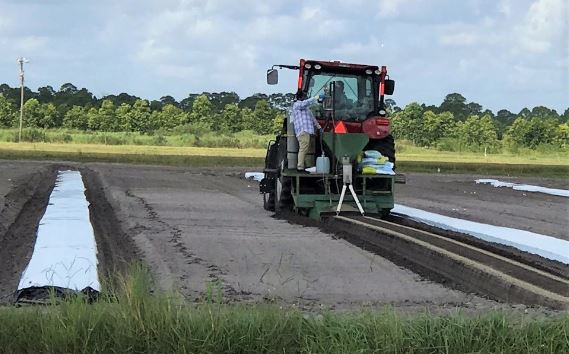By Clint Thompson
An essential component of fumigation is likely to be in short supply this year. The ramifications will impact specialty crop producers across the Southeast.

Johan Desaeger, assistant professor of entomology and nematology at the University of Florida Institute of Food and Agricultural Sciences (UF/IFAS) Gulf Coast Research and Education Center, updated attendees at last week’s Florida Grower Citrus Show about nematode management in vegetables. One of the more effective means is with fumigation. However, there may be a Telone II shortage this year.
“There’s probably, most likely going to be a Telone shortage. We just don’t know to what extent,” Desaeger said. “From what I’ve heard, it may be more impacting Telone II, which is the pure Telone, not so much the mixtures. I think that’s what is on the horizon.”
Who Would Be Impacted?
Desaeger said a shortage would impact sweet corn producers and those who utilize deep shankers or those with serious nematode control issues.
“A lot of growers will use the mixtures with chloropicrin, but anybody that does the deep shanking, it’s Telone II; like sweet corn growers, they’ll use Telone II. Most of the tomato and strawberry growers they’ll use more of the mixtures. I don’t know how badly it’s going to impact, but I think most growers have been notified,” Desaeger said.
One of the most efficient ways to control nematodes and weeds is through fumigation. Fumigation is the process of releasing fumigants to suffocate and kill certain pests within the soil, namely nematodes. Telone is one of the most widely used and effective fumigants. But if it isn’t available, growers have to consider alternative methods of control, which Desaeger believes they should be doing anyway.
“As I’ve said before, we do need alternatives. Some of these new nematicides are going to help a little bit. To solely rely on Telone, I don’t think it’s going to be an option any more in the future,” Desaeger said.
Cover crops, especially with sunn hemp, are effective in reducing nematodes.









